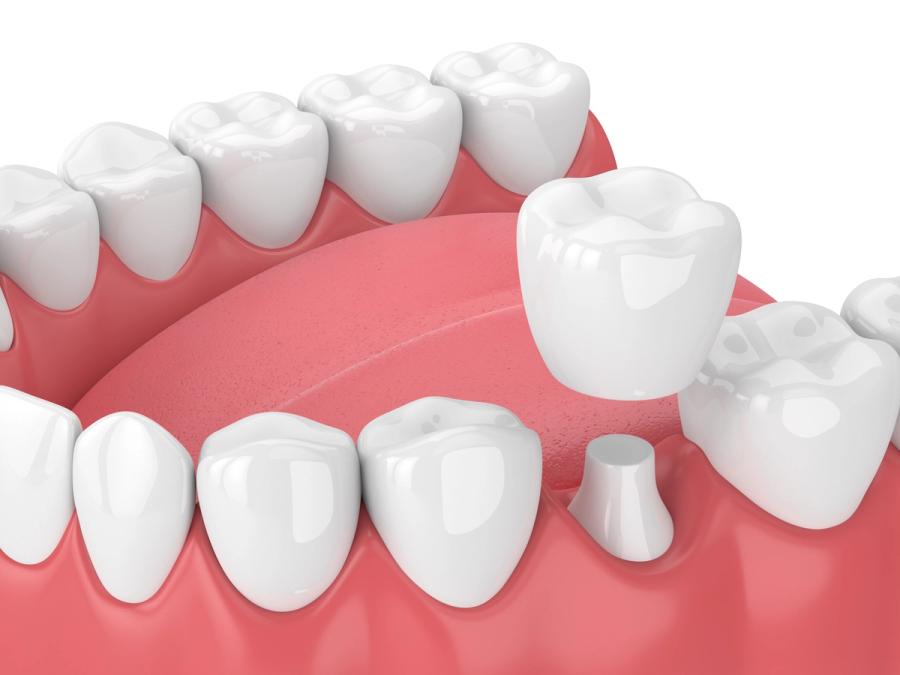Published on Jul 1, 2025 | 7 minute read

Imagine you’ve cracked a tooth or had a root canal. You’re told you need a “crown,” but you’re picturing something a king might wear—maybe a little over the top, right? But in the world of dentistry, dental crowns are the unsung heroes. They rescue broken teeth, restore full function, and—yes—give your smile the royal treatment it deserves.
Whether you're dealing with deep decay, a worn-down tooth, or a cosmetic concern, dental crowns offer a reliable, long-lasting fix. And when done right, they blend in so naturally that even you might forget it’s there.
Let’s keep it simple: a dental crown is a custom-made cover or “cap” that fits over a damaged or weakened tooth. Its main job is to protect, strengthen, and restore the tooth’s shape and appearance.
You might need a crown if you have:
Crowns can be made from various materials, including:
At Pak Dental in Auburn Hills, we often recommend porcelain or zirconia for front teeth due to their natural appearance and strength.
Getting a crown usually takes two visits—but don’t worry, it’s more comfortable and straightforward than you might think.
Dr. Pak will examine the tooth and may take X-rays to assess the root and surrounding bone. If the tooth is severely decayed or cracked, a root canal may be done first.
Next, the tooth is reshaped—just enough to allow the crown to fit snugly. If a large portion is missing, a filling material may be used to build it up.
Once the tooth is shaped, an impression is taken and sent to a dental lab to craft your custom crown. In the meantime, a temporary crown is placed to protect the tooth.
At your next visit (usually a couple of weeks later), the temporary crown is removed and the new one is cemented in place. The dentist will ensure it fits your bite perfectly and looks completely natural.
After that? You’re good to go—with a restored tooth that feels like it’s always been there.
Dental crowns aren’t just about fixing broken teeth. They’re about restoring function, comfort, and confidence. According to the Journal of Prosthodontic Research, crowns have an exceptionally high success rate over long periods—making them a trusted tool in restorative dentistry.
Here’s why so many patients choose crowns:
In short, they don’t just fix your tooth—they help your mouth work the way it’s supposed to.
You don’t need a special routine to take care of your crown. It just wants the same TLC you’d give your natural teeth:
If you experience pain, sensitivity, or notice the crown feeling loose, don’t wait—call your dentist. Catching issues early keeps them from becoming expensive repairs later on.
Sometimes people wonder why they can’t just get a big filling instead of a crown. The key difference lies in structural integrity.
Think of a filling as spackling a hole in drywall—great for minor fixes. A crown, on the other hand, is more like reinforcing a cracked foundation. It gives the tooth full support.
Your dentist will recommend a crown if there’s not enough healthy tooth left for a filling to stay put long-term.
With good habits, your crown can last well over a decade. According to the American College of Prosthodontists, most crowns last between 10 to 15 years, but many last longer if you avoid habits like:
Over time, the crown itself might still be in great shape, but the natural tooth underneath can become vulnerable to decay. That’s why consistent oral hygiene matters.
Crowns are ideal when a tooth has suffered enough damage that it needs full coverage to be functional again. Some common reasons patients need a crown include:
And unlike temporary fixes, a well-placed crown offers years of peace of mind.
Getting a crown might not sound glamorous, but it can absolutely be life-changing. Imagine biting into a crisp apple again without hesitation—or smiling fully in photos because you know your teeth look even and healthy.
Sometimes, dental crowns help people eat better. Sometimes they help them speak more clearly. But almost always, they help people feel better—physically and emotionally.
And when you walk out of the office with a newly restored tooth, you'll understand why the word “crown” feels so fitting. It’s not just a cover—it’s a symbol of strength.
If you’ve been told you might need a dental crown—or think your tooth might need serious support—call Pak Dental at 248-243-4876 to schedule your appointment in Auburn Hills. Let’s give your smile the strength and beauty it deserves.